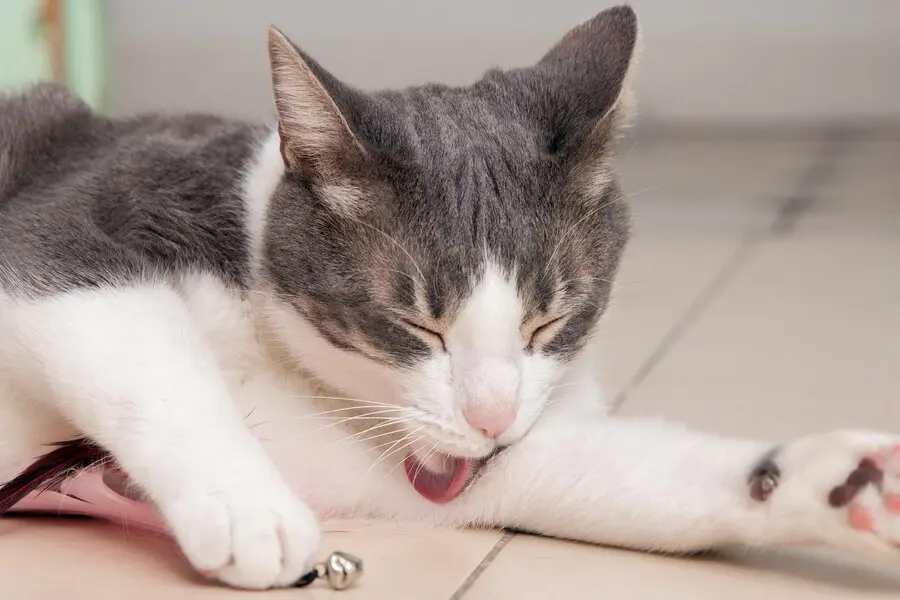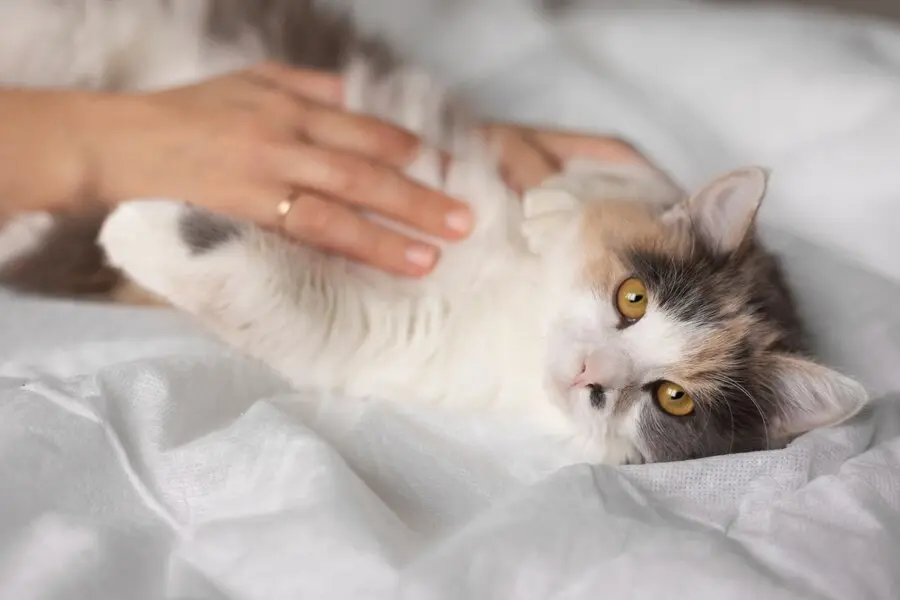Signs that your cat is sick
Posted Date: 05/11/2567
Signs That Indicate Your Cat May Be Sick
Cats tend to hide their symptoms and are not good at showing when they’re unwell. They often conceal their condition when feeling sick. Therefore, what helps us recognize that a cat may be ill are unusual warning signs that differ from their normal behavior. If you suspect your cat is sick but aren’t sure if it’s serious, OKIKO has compiled a list of signs that cat owners should carefully observe before deciding to take their cat to the veterinarian. This article covers 5 key signs indicating that your cat may be ill.
How to Prevent Health Problems in Cats
Cats should have regular health check-ups at least once a year, especially as they get older. It is also important to ensure that cats receive all their vaccinations and booster shots on schedule without missing any. Some people think that indoor cats don’t need vaccinations, but that is a misconception. OKIKO recommends vaccination to help prevent illness and reduce the severity of diseases.
Eating Less or Loss of Appetite
This small sign is often overlooked. Cats eating less than usual can be caused by many factors, such as being bored with their food, hot weather, or sneaking other food. However, loss of appetite can also be a hidden sign that your cat is experiencing health issues, especially in kittens and senior cats.

Recommended High-Protein, Aromatic Cat Food to Stimulate Appetite
High-quality cat food with lamb, salmon, and rice formula.
Made from premium Australian lamb with 34% high protein.
Hydrolyzed salmon.
Complete nutrition with various essential vitamins.
Helps nourish dense, shiny, and healthy fur.
Affordable price, aromatic scent, and kidney-friendly.
Also helps reduce skin problems and hair loss in cats.
Follow great promotions at facebook Page: OKIKO Thailand.
Vomiting and Illness
Vomiting can occur in various forms, such as hairball vomiting, grass vomiting, or vomiting caused by eating too quickly which can lead to choking or regurgitation. These behaviors can be normal occasionally. However, signs that indicate illness include vomiting with blood, foam, or unusual color, accompanied by other symptoms such as lethargy, diarrhea, or loss of appetite. If these symptoms occur, promptly consult a veterinarian to examine your cat and prevent diseases such as intestinal, liver, or kidney problems.
Defecation and Urination Problems
If your cat has diarrhea with black stool, blood, or mucus, you should immediately consult a veterinarian, as these may indicate serious health conditions. Additionally, symptoms like vomiting, lethargy, loss of appetite, or weight loss accompanied by diarrhea should also be taken seriously. In cases of constipation, hard stools, or excessive hair in the stool, although these may seem less severe, they can also be signs of other diseases. It is important to bring your cat to the vet for diagnosis and proper treatment.
If you notice abnormal behavior such as frequently circling the litter box but urinating very little or not at all, crying out in pain while urinating, or blood in the urine, these may indicate urinary tract problems like cystitis. If left untreated, complications in the lower urinary tract can become severe and pose significant health risks to your cat. Therefore, to prevent risks, take your cat to the vet immediately when you observe these symptoms for proper diagnosis and treatment.
Increased Drinking and Urination
Changes in your cat’s drinking behavior can indicate health issues. Veterinarians recommend that if your cat drinks excessively without any changes in diet or environment, you should have your cat checked promptly. This may be a sign of illnesses such as diabetes, kidney disease, or other urinary system disorders.

Skin and Coat Health
The skin health of your cat is very important because it acts as a protective barrier for their body. Healthy skin and shiny fur help your cat feel comfortable and prevent skin diseases. Normally, a healthy cat’s skin appears pink or black, and their fur is smooth and glossy.
Recommendations for Caring for a Sick Cat
- Isolate the sick cat: If you have multiple cats, separate the sick cat from the others to prevent the spread of disease.
- Follow the veterinarian’s instructions: Administer medications as prescribed and strictly follow all veterinary advice.
- Take care of food and water: Provide easily digestible food and clean water at all times.
- Maintain cleanliness: Regularly clean your cat’s bedding and belongings.
- Prepare basic first aid supplies: Keep nail clippers, tweezers, cotton balls, and antiseptic ready.
- Keep a health record: Maintain a health history for your cat to help veterinarians accurately diagnose any illnesses.










